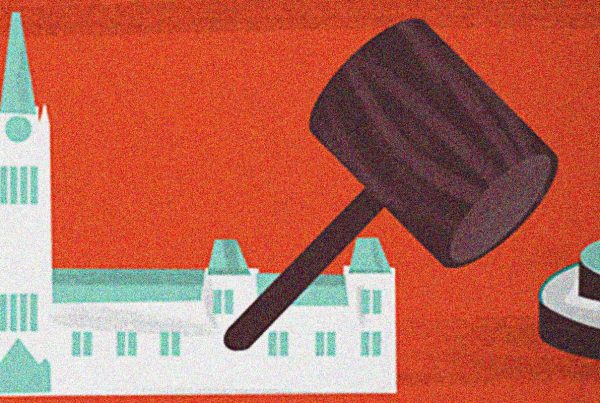Want to learn about recent changes to the Citizenship Act, but don’t know where to begin? Here’s a summary to get you started.
Because the Learn section of TalkRights features content produced by CCLA volunteers and interviews with experts in their own words, opinions expressed here do not necessarily represent the CCLA’s own policies or positions. For official publications, key reports, position papers, legal documentation, and up-to-date news about the CCLA’s work check out the In Focus section of our website.
What is Bill C-24 and what new changes does it make to the citizenship process?
Bill C-24 An Act to amend the Citizenship Act and to make consequential amendments to other Acts (“Bill C-24”) has created several changes to the citizenship process in Canada. Some of the main changes include:
- A new intent to reside provision: the requirement that applicants be physically present in Canada on a continuous basis for 4 out of 6 years.
- Residency calculation: time spend in Canada as a non-permanent resident does not count towards the applicant’s total residency time
- Revocation of citizenship status: citizenship status can be revoked for either allegations of crime or criminal convictions
- Refusal of citizenship applications: lack of documentation or a refusal to provide documentation within certain time lines will result in an abandoned application
- Lost Canadians: certain categories of Lost Canadians will have their citizenship restored
When will Bill C-24 take effect?
Bill C-24 became law on June 19, 2014. The majority of the Bill’s provisions took effect from that date onwards. However, for practical reasons some provisions will take effect at different times as determined by the Governor in Council. Applicants are advised to keep up to date with news releases from the Government of Canada for updates.
The following provisions took effect immediately from June 19, 2014:
- The fast tracking of applications from the Canadian Armed Forces
- The limitations on citizenship applications from those born abroad
- The passage of citizenship from Crown Servants to their children, whether born abroad or adopted
- Provisions on discretionary grants
The following provisions took effect from August 1, 2014:
- The establishment of Citizenship Officers as the primary decision-makers in reviewing applications
- The creation of an appeal process for decisions made by Citizenship officers.
- The enhancement of Citizenship and Immigration Canada’s (“CIC”) powers in determining what constitutes a complete application and what evidence is deemed necessary. The CIC is now entitled to put files on hold and abandon a file entirely at any stage of the application process if the applicant fails to provide requested information or attend an interview
What is ‘intent to reside’? How is travel outside of Canada impacted as a result?
The new requirement of “intent to reside in Canada” refers to the naturalization process once citizenship is granted. This requirement has two components: (1) intention to continuously reside in Canada from the date of the citizenship application until the day of the citizenship oath is completed and (2) actual physical presence in Canada measured in days. In practical terms, this requirement is fulfilled if the applicant resides in Canada for at least 183 days in the 4 out of 6 years prior to making a citizenship application. Generally speaking, this means that travelling outside of Canada will disrupt the intent to reside requirement and therefore result in a denial of citizenship. However, there are a few exceptions to this. Travel outside of Canada will still count towards the residency calculation where:
A permanent resident is employed in service to Canada abroad as:
- A member of the Canadian Armed Forces, or
- An employee of the federal public administration or public service of a province
A permanent resident is associated with a spouse, common law partner or parent who is a Canadian citizen employed in service to Canada abroad as:
- A member of the Canadian Armed Forces, or
- An employee of the federal public administration or public service of a province
Impact of amendment
The problem of calculating applicant ‘loyalty’ – According to the drafters of the Bill, the purpose behind the “intent to reside” requirement is to “emphasize attachment to Canada”. However, measuring “attachment” in terms of continuous, physical presence in Canada can have the effect of linking an applicant’s desire to remain in Canada with the degree of his/her residency. For some critics this amounts to a statement of distrust: applicants must demonstrate proof of loyalty to Canada before citizenship is granted. CCLA’s Executive Director has noted that “Any arbitrary loss of citizenship is incompatible with democratic values and fundamental rights.” Civil liberties activists are concerned with the consequences that follow from such exclusionary provisions. They argue that the provision places undue pressure on applicants to strictly adhere to the residency requirement even if it means sacrificing academic, employment, or other opportunities and obligations that require a prolonged stay outside of Canada. If applicants feel as though their citizenship status is in jeopardy because of how their life choices are perceived by government officials, this may actually weaken his/her ties to Canada.
There are also practical concerns regarding the cost in resources and in time to implement this provision in practice. The complexity of calculating total residency is likely to strain the already lengthy application review process and will require a greater allocation of resources.
Under what circumstances can a citizenship application be denied?
According to the Government of Canada, a citizenship application will be denied by a Minister if the applicant has a criminal history that includes any of the following:
- A conviction for an indictable offence or an offence under the Citizenship Act in the 3 years prior to the application
- A current charge for a Citizenship Act offence
- Current time served on parole, probation or in prison
- An investigation, charge or conviction of a war crime or crime against humanity
- The revocation of citizenship in the past 5 years
Applicants who are either on probation or are awaiting trial for a criminal charge are advised to wait until the end of probation or the trial to apply for citizenship. However, time served in prison, on parole, or on probation where a conviction was made, does not count towards the total time lived in Canada for the purposes of citizenship.
Impact of amendment
Bill C-24 takes on the role of the criminal justice system – The reasons for either denying a citizenship application or revoking citizenship entirely have a basis in perceived and actual criminality. This raises some concern as the decision to refuse citizenship is akin to a punishment in addition to any penal consequences resulting from a criminal charge; in the case of allegations alone, the outcome is the same. The Canadian Association of Refugee Lawyers and other civil liberties advocates have expressed concerns about shifting such decision-making away from the criminal law courts and towards an Immigration Minister. Canada’s criminal justice system has traditionally served as the primary means by which criminal allegations are heard, tried and decided on, in an impartial manner and in keeping with the principles of retribution, denunciation, deterrence and rehabilitation. It is argued that the courts remain the most appropriate forum for such matters; to place this judicial responsibility elsewhere may compromise the judicial process and associated rights. This remains a valid concern where the provision does not distinguish between crimes committed in Canada and those committed outside of Canada. A level of nuance is needed to account for the difficulty in equating criminal sentences in other countries with those recognized in Canada.
Under what circumstances can citizenship be revoked?
Citizenship status can be revoked by a Minister where the individual is deemed a threat to national security or has committed citizenship fraud.
Threat to National Security
Individuals will be considered a threat to national security if they have been convicted of any of the following criminal offences either before or after the new Bill amendments:
- Treason or high treason (per s.47 Criminal Code and ss.10(2)(a) and 10(2)(e) of the National Defence Act)
- A terrorism offence (per s.2 Criminal Code)
- Aiding the enemy, in battle or as a prisoner of war (per s.10(2)(c) of the National Defence Act)
- Espionage (per s.10(2)(d) of the National Defence Act)
- Communicating safeguarded or operational information (per ss. 10(2)(g) and 10(2)(h) of the National Defence Act)
- Also, citizenship will be revoked where the individual has either served as a member of an armed force in an armed conflict against Canada or the Minister has reasonable grounds to believe that he/she has, and makes a successful declaration to the Federal Court to that effect.
Fraud
Citizenship fraud can involve either misrepresenting or concealing relevant facts in the citizenship application form (for example, birth details, marital status, work and education history etc). It can also include pretending to live in Canada without achieving citizenship status through the proper procedure. If a citizenship application contains false facts or if an individual is found to have obtained, retained, renounced or resumed their citizenship by fraud, his/her application and/or citizenship status will be revoked.
How does Bill C-24 address the issue of citizenship fraud?
Bill C-24 introduces a new regime for actual or suspected cases of citizenship fraud that can result in a revocation of citizenship. The Minister, Governor in Council and potentially the Federal Court are involved in this new procedure rather than a judge alone. If fraud is suspected, the Minister reviews all of the evidence and comes to a decision as to whether or not fraud likely occurred. If the Minister finds that fraud has likely occurred, the person affected will lose their citizenship and become a permanent resident. If the person affected was a permanent resident and not a citizen prior to the finding of fraud, he/she will lose their permanent resident status. According to the provision, the Minister is required to give notice of the fraud investigation at its start so that the accused individual may file a written response in return. If regulations permit, a hearing will be held, giving the accused individual a chance to offer their perspective. However, the Minister’s decision is considered final. This decision can be appealed but an appeal must first be applied for and then permitted before the appeal can move forward.
In circumstances where the Minister has reasonable grounds to believe that there is fraud in relation to security matters (such as in criminal allegations or convictions), a declaration to the Federal Court is sought. The Minister of Public Safety and Emergency Preparedness can request that the individual be declared inadmissible to Canada at the same time. If the Federal Court determines that fraud has occurred, the affected individual’s citizenship is revoked. If declaration for inadmissibility to Canada is also successful in the court’s decision, the person affected is deemed a foreign national and can then be deported.
Impact of Amendment
Targeting fraud and suspicion of newcomers – Though the stated purpose of the changes to the Citizenship Act was to “strengthen” the institution of Canadian citizenship, these changes have been controversial. Critics of the Bill have noted that the provisions aimed at eliminating citizenship fraud are based on an exaggerated concern. Recent statistics have shown that there are relatively low incidents of citizenship fraud. While citizenship fraud is an issue, civil liberties advocates call for a response that is proportionate and at the very least, minimally infringing compared against the recent applicant requirements which appear both stringent and arbitrary in effect. Advocates have also expressed concern that the process operates with an inherent and uncalled for suspicion of newcomers to Canada. Viewed in this light, it is unclear whether the dialogue of inclusivity around Canadian citizenship is still honoured.
The impact on due process – Civil liberties organizations, including CCLA, are also skeptical of the amendments relating to the review and appeal processes. Expanding the Minister’s discretionary powers in the review and revocation of applications can pose a problem of justice. The Minister is not obligated to provide his/her reasons for the decision to revoke citizenship or deny an application. If transparency is not achieved in this process, questions of accountability and arbitrariness are raised. This is significant given that the decision to grant or deny citizenship has a profound impact on the individual applicant’s life, welfare, and future opportunities. While applicants may appeal the Minister’s decision, the difficulties inherent in the process effectively render the decision final in most instances. Applicants must apply for and obtain permission to appeal before it is heard. This is a significant change compared to an applicant’s right of appeal before the amendment. Some rights activists worry that even if an appeal is granted, the Federal Court judge would have little room to justify overruling the Minister’s decision.
The possibility of statelessness – According to the Canadian Association of Refugee Lawyers, Bill C-24 has generational limits that make statelessness a reality for individuals who are born abroad to Canadian parents and who are excluded from citizenship in the country they were born in. This may occur more frequently than originally guessed as many countries refuse to grant citizenship to children whose parents are foreign nationals.
Who are the “Lost Canadians” and how does Bill C-24 address their unique citizenship issues?
The “Lost Canadians” are a large category of individuals who for the most part, believe themselves to be Canadians, (in most cases) have lived in Canada for many years and who technically never possessed or lost their citizenship due to a number of outdated and inconsistent laws.
The Government of Canada recognizes four groups of Lost Canadians:
- War brides
- People born abroad to a Canadian parent prior to the 1977 Citizenship Act
- People who acquired nationality or citizenship of another country, either independently or through their parents, during the period of January 1947 and February 1977
- Second and subsequent generation Canadians who were born abroad after the 1977 Citizenship Act came into effect
Remedies
Bill C-24 now restores citizenship status to certain categories of Lost Canadians:
- Individuals who were born before the Canadian Citizenship Act 1947
- First generation children who were born abroad to a parent or parents who were born prior to the Canadian Citizenship Act 1947
- Naturalized Canadians who were ineligible for Canadian citizenship when the Canadian Citizenship Act took effect
- Their first generation children will also retroactively receive Canadian citizenship
- British subjects residing in Canada before January 1, 1947 or before April 1, 1949 in Newfoundland
- Their first generation children will also retroactively receive Canadian citizenship
- Individuals whose grandparent(s) were employed by the Crown and whose parent(s) were born abroad during the course of their parent(s)’ employment by the Crown
What is the difference between immigration status, permanent residency and citizenship status?
Immigration Status
Immigration status allows an individual to migrate to and reside in Canada. To achieve immigration status, individuals must apply through a government program, such as sponsorship or a worker program. Eligibility is determined based on the requirements of the program and the individual’s general admissibility to Canada. Those who fall under the inadmissible persons provision in the Immigration and Refugee Protection Act are excluded from immigrating to Canada.
Permanent Residency Status
Permanent residents are generally citizens of another country and usually reside in Canada on a more permanent basis compared against students or foreign workers. This status is obtained through a successful application, which may include a refugee claim. While permanent residents do not have the full rights that Canadian citizens have, they are still entitled to:
- Receive most social benefits including health care coverage
- Live, work or study anywhere within Canada
- Apply for Canadian citizenship
- Receive the protections outlined in the law, including the Canadian Charter of Rights and Freedoms
However, permanent residency status may be lost if the individual does not live within Canada for the prescribed number of years, is criminally convicted and/or is ordered to leave Canada.
Citizenship Status
Canadian citizenship is the final status that can be achieved. It provides the fullest coverage of rights and responsibilities that according to some, is fundamental to full membership within Canada as opposed to a privilege that may be revoked for arbitrary or unjust reasons. All of the rights of citizens are outlined in Canadian law and more specifically, in the Canadian Charter of Rights and Freedoms.
About the Canadian Civil Liberties Association
The CCLA is an independent, non-profit organization with supporters from across the country. Founded in 1964, the CCLA is a national human rights organization committed to defending the rights, dignity, safety, and freedoms of all people in Canada.
For the Media
For further comments, please contact us at media@ccla.org.




